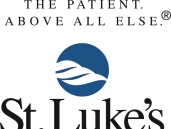Organizations Partner to Form Bridging Health Duluth
 Several organizations have been working together the last several months to create Duluth’s first ever collaborative Community Health Needs Assessment (CHNA). A CHNA is a systematic examination of the health status indicators for a given population, used to identify key problems and assets.
Several organizations have been working together the last several months to create Duluth’s first ever collaborative Community Health Needs Assessment (CHNA). A CHNA is a systematic examination of the health status indicators for a given population, used to identify key problems and assets.
The federal requirement for nonprofit hospitals to complete a CHNA every three years went into effect as part of the Affordable Care Act. St. Luke’s and Essentia Health completed separate CHNAs the first go-round in 2013. “However, the federal government strongly encourages health care systems and public health to work together on needs assessments,” explains Jessica Stauber, St. Luke’s director of marketing and business planning. “We serve patients in the same community so it makes great sense to work together to identify our community’s health needs and work together to address them.”
Required to complete a CHNA every five years, St. Louis County Public Health also sees the benefit of joining forces, along with Generations Health Care Initiatives, a Duluth-based nonprofit committed to improving the health of our community; the Carlton-Cook-Lake-St. Louis Community Health Board, the four-county governing authority for local public health; and Zeitgeist Center for Arts and Community, a Duluth-based nonprofit working for a connected, healthy community empowered to create and thrive. These five organizations make up the charter members of Bridging Health Duluth.
Tony Cuneo, Zeitgeist Center for Arts and Community‘s executive director, says better health happens through collaboration. “To really control health care costs and improve the health of people in our community, we need to act outside the walls of doctors’ offices and hospitals. Figuring out how we can make it easier to be healthy in our community isn't just the right thing to do, it's important to our economic and environmental future."
Members of this group and other healthcare leaders conducted the 2015 Bridge to Health survey in late 2015, with results released at a regional conference in April 2016. With the survey results in hand, Bridging Health Duluth followed up with focus groups to further understand what the community feels are the greatest health needs. Through the collaborative process, more than 500 community members shared what is working to make Duluth healthy – and what is not working. Themes emerged, including issues with mental health care and access to healthy food.
“We look at what needs are identified in each community then come up with a strategic plan to address those needs,” says Kayla Keigley, Essentia Health’s program manager of community health. “It’s a community-driven process focused on collaboration among public health data, local surveys such as the Bridge to Health Survey, and community conversations.”
In Duluth, the greatest needs identified are:
- Mental health
- Alcohol, drugs and tobacco use
- Obesity
- Socio-economic disparities based on race and neighborhood
The CHNA is now posted online at http://www.essentiahealth.org/main/community-benefit-chna.aspx and slhduluth.com/CHNA. People are encouraged to reach out with comments or questions. A hard copy of the CHNA is available by contacting 218.249.5117.
Bridging Health Duluth is currently working to develop an implementation plan, which outlines goals, priority audiences, strategies and potential partners for addressing each of the four areas of greatest need. This plan will be published by November 15, 2016.

